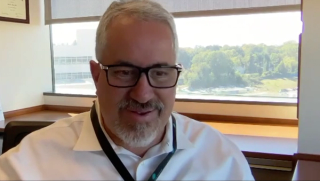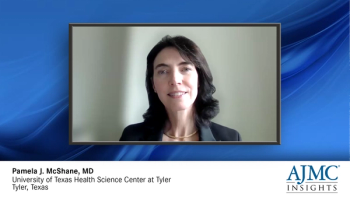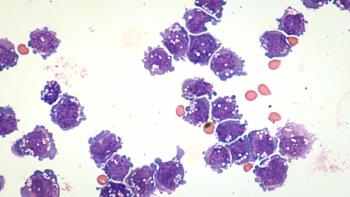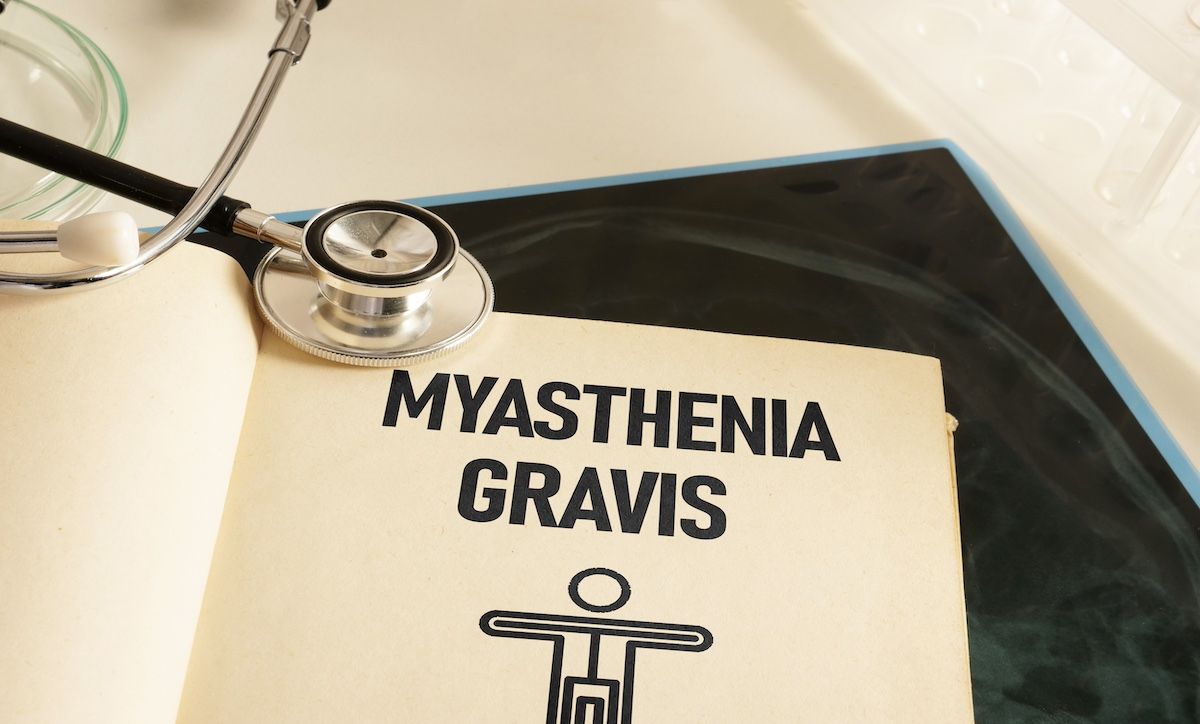
Clinical
Latest News
Latest Videos

CME Content
More News

Patients with systemic lupus erythematosus (SLE) and atrial fibrillation (AF) exhibited elevated risks of severe cardiac complications, alongside increased in-hospital mortality, costs, and length of stay (LOS).

Most fragility fractures experienced by people with chronic lymphocytic leukemia (CLL) are vertebral, the study found.

Among adults with newly diagnosed cancer, rates of low-value cancer services persisted throughout the COVID-19 pandemic in areas ranging from peridiagnosis imaging to end-of-life care.

Patients included in the analysis had psoriatic arthritis and had either not been treated with biologic disease-modifying antirheumatic drugs or had an inadequate response or an intolerance to tumor necrosis factor inhibitors.

The newest treatment approved for amyotrophic lateral sclerosis (ALS) will be withdrawn from the market due to negative clinical trial results; former President Trump’s surgeon general is advocating for conservative states to support needle exchanges; new US hepatitis C infections dropped slightly in 2022 after more than a decade of steady increases.

This study builds on previous evidence for lenalidomide-induced selective advantage for TP53-mutant clones.

Investigators reported the regimen had a tolerable safety profile, though they said its use may be limited due to the development of newer therapies.

Pamela J. McShane, MD, discusses the long-term outcome of patients with bronchiectasis and emphasizes the crucial role of radiographic imaging in diagnosing the disease.

The authors say a standard method of assessing metabolic tumor volume would be needed for its use to become widespread.

Surprisingly, the investigators found people with uncontrolled hypertension before the pandemic actually had a slightly higher chance of getting their blood pressure under control during the crisis.

Monica Li, MD, medical and cosmetic dermatologist, listed microneedling considerations and precautions so that providers can safely implement the procedure.

Jonathan Silverberg, MD, PhD, MPH, FAAD, of George Washington University School of Medicine and Health Sciences, discusses atopic dermatitis (AD) diagnosis and treatment differences in children vs adults.

A meta-analysis found significant associations between maternal stress, anxiety, depression, and adverse life events during pregnancy with increased atopic dermatitis (AD) risk in offspring.

A decrease in surgeries to address colorectal cancer (CRC) could lead to unknown consequences, including intensifying challenges faced by the patients.

Robert Gabbay, MD, PhD, discusses research showing that early intervention with a recent FDA-approved therapy can delay the onset of type 1 diabetes by an average of 2-3 years.

Treatment with R-GemOx was associated with significant health care resource utilization, high costs surrounding treatment, and low overall survival in elderly patients with diffuse large B-cell lymphoma (DLBCL).

Most newly treated patients with type 2 diabetes exhibit suboptimal medication persistence, which is associated with higher risk of hospitalization and increased medical costs.

Raj Chovatiya, MD, PhD, associate professor at the Rosalind Franklin University of Medicine and Science, described monitoring protocols for clinicians when using oral Janus kinase (JAK) inhibitors to treat patients with atopic dermatitis (AD).

Despite the positive week 48 results when used to treat moderate to severe hidradenitis suppurativa (HS), Jeff Stark, MD, of Union Chimique Belge, noted that bimekizumab is still considered an investigational therapy for HS treatment as it has not yet received an FDA approval.

Medical experts discuss potential solutions to mitigate preventable challenges in cardiovascular disease treatment, such as reforming the fee-for-service system and implementing value-based care models.

Panelists discuss financial obstacles, out-of-pocket costs, prior authorizations, and the inpatient/outpatient care paradigm.

The panel discusses disparities in the quality of care received by Philadelphia chromosome-positive acute lymphoblastic leukemia (Ph+ ALL) patients.

The panel discusses remaining gaps in Philadelphia chromosome-positive acute lymphoblastic leukemia (Ph+ ALL) treatment and shares perspectives on optimal practices and care settings for managing this disease.

Despite being used for decades, there continues to be emerging data on interferons and how they should be used in patients with myeloproliferative neoplasms (MPNs), explains Raajit Rampal, MD, PhD, hematologic oncologist, associate attending physician, Memorial Sloan Kettering Cancer Center.

Studies of DNA methylation, RNA methylation, and histone modification revealed important information about the pathology of chronic lymphocytic leukemia and treatment potential.














